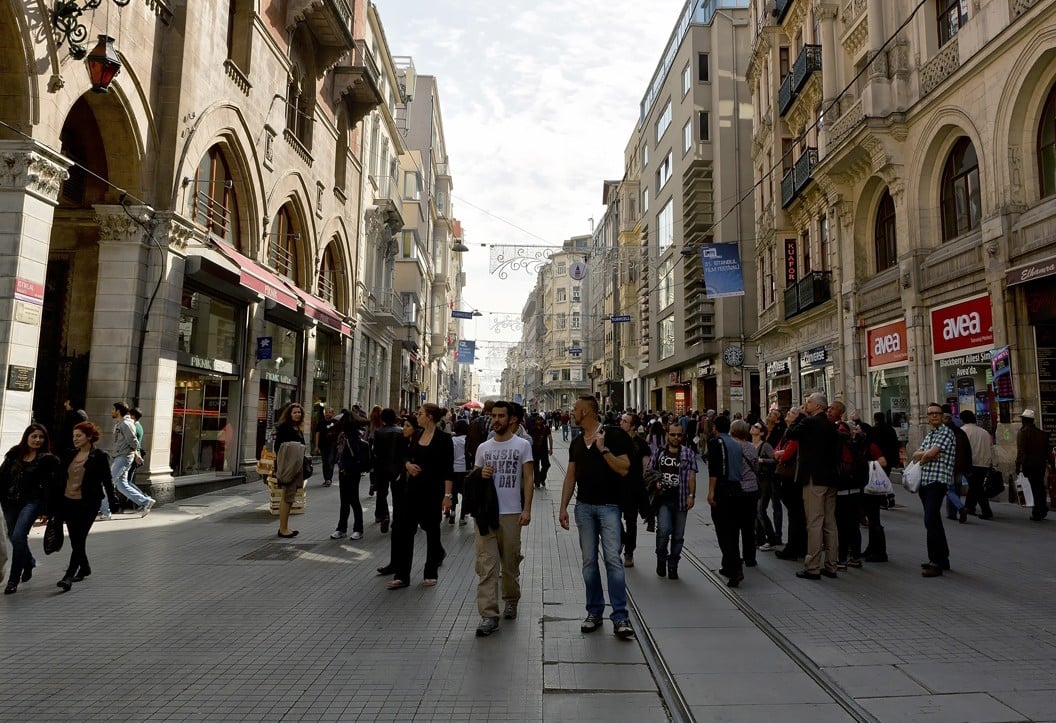
Reflections of a Pakistani student studying in Istanbul

There is no place like home, goes the cliché. For me, there is also no place like second home. My second home is Istanbul. Or at least that is how I feel after two years of college there.
As my academic year ends, and the summer holidays kick off, I make the transition from Istanbul’s pleasant 20 degree celsius weather to Islamabad’s drenching heat of June. In spite of the uncomfortable weather shift, I know that being home in Islamabad is a feeling like no other. I am back in the comfort of my spacious bedroom, of being served, fussed over by my mother, and of having a luxury that is a car.
However, as a few weeks go by, I find myself regularly reminiscing about life in Istanbul. I miss the everyday banality of travelling in a metro, going grocery shopping or attending classes. I miss the exhaustion I feel after carrying shopping bags to the third floor to my apartment and the fury that infiltrates me when I realise I have forgotten to buy an ingredient essential for making my dinner.
Needless to say, my school friends studying abroad share similar sentiments and we compare the challenges and excitement of navigating life alone. One friend talks fondly about Edinburgh while another narrates stories of Toronto. Naturally, one develops a certain attachment to a place where they attend an educational institute for a good period of time.
But my relationship with Istanbul extends beyond the quintessential experience of a student living overseas and managing things on her own.
Istanbul is quite different from both Toronto and Edinburgh. It is neither entirely western nor entirely eastern. Perhaps, that is why it offers me a sense of familiarity that I cannot easily describe. The feeling associates less with the university life there and more with the nature of the very city, and how it often reminds me of Pakistan while also faring much better in many aspects.
More modern and liberal than South Asian and Gulf countries but less than its European neighbours, Istanbul occupies a unique place.
It is the only city in the world that straddles two continents. This might be a guidebook cliché but there is something unique about the fact that its one leg rests in Europe and the other in Asia. A Pakistani friend often jokes about taking a ferry to the Asian side to "have dinner in another continent" in reference to the continent-crossing charm of Istanbul.
The geographical phenomenon applies to less tangible forms too. Istanbul is a city that inhabits a liberal, secular population as well as a religious and conservative one. You may see a woman sporting a miniskirt and another clad in headscarf. There are mosques, and there are nightclubs. There are people uttering "Mashallahs" and "Inshallahs" and there are those drinking beer at Isteklaal Caddesi. It is a bridge between East and West in the truest sense of the word.
The one irksome aspect of Istanbul and the whole of Turkey is that the local population speaks little or no English. So, sometimes seeking directions or ordering food becomes an uphill task - unless, of course, you learn some Turkish.
Regardless, I do not feel out of place -- because the contradiction between life in Turkey and life in Pakistan is not too stark. There are two ways to interpret the similarities. On one hand, we could say that Turkey still has a long way to go to be at par with other European countries, and on another, we could claim that its similarities with other eastern countries add to its beauty and make it feel more like home.
Originally being a Karachiite, I cannot but help notice resemblance between the two cities in several aspects. The fact that there are foodstalls in almost every corner of Istanbul, selling shawarmas and durums (Turkish kebab wrap) reminds me of the lively streets of Karachi. Like anywhere in Pakistan, I am able to bargain the price of items at stalls or shops in Istanbul.
In the not-so-positive vein, Istanbul, like anywhere in Pakistan, has men ogling at women, because they cannot help it. I know every time I will go to the crowded Isteklaal Caddesi, men will stare the way they do at Jinnah Super in Islamabad. And, if you unintentionally smile at them, they will think it is an invitation for greater intimacy.
I recall once, during a weekday last semester, I was walking with a female friend in Sultanahmet region of Istanbul, a place famous for tourists, when a shopkeeper yelled, "Lady you dropped something". I immediately looked back to see if I had dropped my cell phone. With a smirk on his face, he said, "My heart". I almost choked on the Turkish dondurama (ice-cream) I was indulging in and my friend laughed.
Pakistanis and Turks are quite the same when it comes to pedestrians safety. The risk of death at the hands of a crazy cab driver always looms dangerously close when I walk the streets of Istanbul.
It is these everyday occurrences that blur the lines between my first and second homes. The two are different yet similar, in good ways and the not-so-good ways. I think I will just call Istanbul a home away from home.